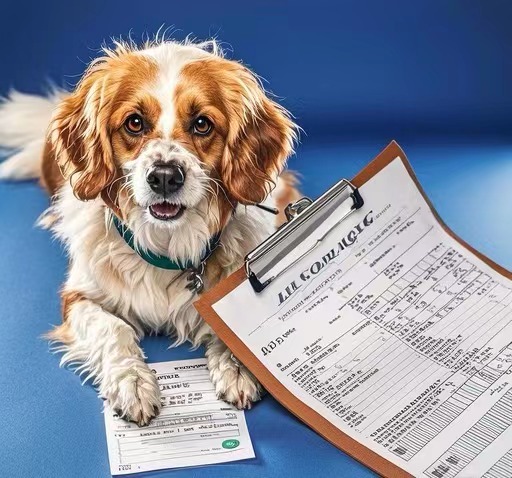
por TCMVET | Jun 6, 2024 | Câncer e tumores caninos
Cancer in dogs is a growing concern for pet owners worldwide. While traditional treatments like surgery, chemotherapy, and radiation therapy are commonly used, there is increasing interest in the potential benefits of Chinese herbs. These natural supplements can help alleviate cancer symptoms and enhance overall health. This article explores the key Chinese herbal anti-cancer supplements and introduces the highly regarded TCMVET products.
The Benefits of Chinese Herbal Supplements
Chinese herbs have been used for thousands of years, offering a wealth of clinical experience and proven efficacy. They work by naturally enhancing the immune system, reducing the spread of cancer cells, and improving the overall vitality of dogs. Here are some of the top Chinese herbal supplements for dogs with cancer:
1. Cogumelo Reishi (Ganoderma lucidum)
Reishi mushroom, known for its immune-boosting properties, can help improve the body’s resistance to cancer. It contains polysaccharides and triterpenoids that have anti-tumor effects and can enhance the efficacy of chemotherapy.
2. Turkey Tail Mushroom (Trametes versicolor)
Turkey Tail is renowned for its potent anti-cancer properties. It contains PSK (polysaccharide-K) and PSP (polysaccharide-peptide), which have been shown to inhibit cancer growth and improve survival rates in dogs.
3. Astragalus (Astragalus membranaceus)
Astragalus is an adaptogen that supports the immune system, enhances energy levels, and combats fatigue. It helps increase the body’s natural ability to fight cancer cells and works synergistically with conventional treatments.
4. Huang Qi (Astragalus propinquus)
Similar to Astragalus, Huang Qi strengthens the immune system and increases the production of white blood cells, which are crucial in the fight against cancer. It also helps in detoxifying the body and promoting overall well-being.
5. Curcumina (da cúrcuma)
Curcumin is the active ingredient in turmeric, known for its anti-inflammatory and anti-cancer properties. It can help reduce tumor growth and improve the overall health of dogs undergoing cancer treatment.
TCMVET: A Trusted Source for Herbal Supplements
TCMVET offers a range of herbal supplements specifically designed for pets. Their products combine traditional Chinese medicine principles with modern scientific research to create effective and safe treatments for dogs with cancer. TCMVET Baituxiao, for instance, has shown remarkable results in reducing tumor size and improving the vitality and mood of pets. Pet owners have reported significant improvements in their dogs’ conditions, including better appetite, increased energy, and a reduction in tumor-related symptoms.
Conclusão
Incorporating Chinese herbal supplements into your dog’s cancer treatment plan can provide numerous benefits, from boosting the immune system to directly combating cancer cells. With trusted products like TCMVET, you can support your dog’s health and enhance their quality of life. Always consult with your veterinarian before starting any new supplement regimen to ensure the best care for your furry friend.

por TCMVET | Jun 6, 2024 | Alimentação e Saúde
When your beloved dog is diagnosed with cancer, one of the immediate challenges is often a loss of appetite. Maintaining proper nutrition is crucial for supporting their immune system, enhancing treatment efficacy, and improving their overall quality of life. This article offers unique and innovative strategies to help your dog with cancer regain their appetite and enjoy their meals again.
1. Offer Flavorful and Aromatic Foods
One of the simplest yet effective ways to entice your dog to eat is by offering highly palatable and aromatic foods. Consider incorporating options like:
- Canned Wet Food: Rich in flavor and moisture, making it more appealing than dry kibble.
- Homemade Broths: Chicken or beef broth can add enticing smells and flavors to their regular meals.
- Specialty Dog Foods: Foods specifically designed for dogs with decreased appetites, often available through your vet.
2. Frequent, Smaller Meals
Instead of sticking to the traditional twice-a-day feeding schedule, offer smaller, more frequent meals throughout the day. This approach can make eating less overwhelming and encourage more consistent intake.
3. Enhance the Aroma
Dogs rely heavily on their sense of smell, especially when their appetite is low. Boost the aroma of their food by:
- Adding Fish Oil: A small amount of fish oil can significantly enhance the smell and nutritional value of the food.
- Warming the Food: Slightly warming their food can release more aroma, making it more enticing.
4. Hand-Feeding and Positive Reinforcement
Hand-feeding your dog can provide comfort and encourage them to eat. Use positive reinforcement techniques such as:
- Praise and Petting: Give plenty of praise and affection when they eat, creating a positive association with mealtime.
- Small Rewards: Offer small, healthy treats as rewards for eating portions of their meal.
5. Experiment with Food Texture
Some dogs may prefer certain textures over others. Experiment with:
- Soft and Moist Foods: Easier to eat and digest, especially if your dog is experiencing mouth sores or dental issues.
- Mixing Textures: Combine crunchy kibble with wet food or broths to create a more appealing mix.
6. Use Appetite Stimulants
Consult your veterinarian about the possibility of using appetite stimulants. There are several safe and effective options available that can help spark your dog’s interest in food.
7. Monitor and Adjust
It’s essential to closely monitor your dog’s eating habits and adjust your strategies as needed. Keep a journal of what works and what doesn’t, and stay in regular contact with your veterinarian to ensure your dog’s nutritional needs are being met.
Conclusão
Helping a dog with cancer to eat can be challenging, but with patience and creativity, you can find ways to rekindle their interest in food. By offering flavorful meals, experimenting with textures, and using positive reinforcement, you can make mealtime a more enjoyable experience for your furry friend. Remember, maintaining good nutrition is key to supporting their overall health and well-being during their fight against cancer.

por TCMVET | Jun 5, 2024 | Câncer e tumores caninos
When a beloved pet is diagnosed with cancer, the first concern for many pet owners is their dog’s health and well-being. However, the cost of treatment, especially chemotherapy, can be a significant concern as well. In this article, we will explore the factors affecting the cost of chemotherapy for dogs, what to expect during treatment, and how to manage these expenses.
What is Chemotherapy for Dogs?
Chemotherapy is a type of cancer treatment that uses drugs to destroy cancer cells. In dogs, chemotherapy can be used to treat various types of cancer, including lymphoma, mast cell tumors, and osteosarcoma. The goal is to control or eliminate the cancer while maintaining the best possible quality of life for the pet.
Factors Affecting the Cost of Chemotherapy for Dogs
Several factors can influence the cost of chemotherapy for dogs, including:
- Type of Cancer: Different types of cancer require different chemotherapy protocols. Some cancers may need more intensive treatment than others.
- Size of the Dog: Larger dogs require higher doses of chemotherapy drugs, which can increase the overall cost.
- Frequency of Treatments: The number of chemotherapy sessions needed can vary. Some dogs may require weekly treatments, while others might need them less frequently.
- Localização: The cost of veterinary care can vary significantly depending on where you live. Urban areas tend to have higher costs compared to rural areas.
- Veterinary Oncologist vs. General Veterinarian: Specialized care from a veterinary oncologist may cost more than treatment from a general veterinarian.
Average Cost of Chemotherapy for Dogs
On average, the cost of chemotherapy for dogs can range from $150 to $500 per session. For a full course of treatment, pet owners can expect to pay between $3,000 and $5,000. However, this cost can be higher or lower depending on the factors mentioned above.
What to Expect During Chemotherapy
Chemotherapy for dogs is typically administered in a veterinary clinic. The process involves:
- Initial Consultation: A thorough examination and diagnostic tests to determine the appropriate chemotherapy protocol.
- Treatment Sessions: Chemotherapy drugs are administered via injection or oral medication. Sessions can last from 30 minutes to a few hours.
- Monitoring: Regular check-ups to monitor the dog’s response to treatment and adjust the protocol as needed.
Managing the Cost of Chemotherapy
While the cost of chemotherapy can be daunting, there are several ways to manage these expenses:
- Pet Insurance: If you have pet insurance, check if it covers cancer treatments. Some policies include chemotherapy and related costs.
- Payment Plans: Many veterinary clinics offer payment plans to help spread out the cost of treatment over time.
- Financial Assistance: Organizations such as The Pet Fund and The Magic Bullet Fund offer financial assistance for pet cancer treatments.
- Crowdfunding: Platforms like GoFundMe can help you raise money to cover your dog’s medical expenses.
Alternative and Complementary Treatments
In addition to chemotherapy, some pet owners explore alternative treatments to support their dog’s health. Natural supplements, like TCMVET Baituxiao, have been reported to help manage tumors and improve vitality. Always consult with your veterinarian before adding any supplements to your dog’s treatment plan.
Conclusão
Chemotherapy can be a lifesaving treatment for dogs with cancer, but it does come with significant costs. Understanding the factors that influence these costs and exploring various options to manage expenses can help ensure that your dog receives the best possible care. Always discuss with your veterinarian to create a treatment plan that fits both your pet’s needs and your budget.

por TCMVET | Jun 5, 2024 | Câncer e tumores caninos
Cordyceps, a unique and powerful medicinal mushroom, has been used in traditional medicine for centuries. Recently, its potential benefits for dogs with cancer have garnered attention among pet owners and veterinarians. This article delves into how Cordyceps can support dogs battling cancer, offering a holistic and natural approach to their care.
Understanding Cordyceps
Cordyceps is a genus of parasitic fungi that grows on insect larvae. The most well-known species, Cordyceps sinensis and Cordyceps militaris, are highly valued for their medicinal properties. These mushrooms are rich in bioactive compounds, including polysaccharides, nucleosides, and sterols, which contribute to their therapeutic effects.
How Cordyceps Benefits Dogs with Cancer
- Boosting the Immune SystemOne of the most critical aspects of fighting cancer is a robust immune system. Cordyceps is known for its immunomodulatory properties, which help enhance the body’s natural defenses. For dogs with cancer, this means a better ability to fight off cancer cells and resist infections that may arise due to a weakened immune system.
- Anti-Tumor EffectsStudies have shown that Cordyceps has anti-tumor properties. The bioactive compounds in Cordyceps can inhibit the growth and spread of cancer cells, potentially slowing down the progression of the disease in dogs. This can be particularly beneficial when used alongside conventional treatments like chemotherapy and radiation.
- Reducing InflammationChronic inflammation is a common issue in dogs with cancer, contributing to pain and discomfort. Cordyceps has potent anti-inflammatory properties, which can help alleviate these symptoms, improving your dog’s quality of life.
- Enhancing Energy LevelsDogs with cancer often experience fatigue and decreased energy levels. Cordyceps is known for its ability to enhance stamina and reduce fatigue, helping your dog maintain a more active and happy lifestyle during their treatment.
- Supporting Liver and Kidney FunctionCancer treatments can be taxing on a dog’s liver and kidneys. Cordyceps has hepatoprotective and nephroprotective properties, meaning it can help protect and support the functioning of these vital organs, ensuring your dog’s body can better handle the stress of treatment.
How to Incorporate Cordyceps into Your Dog’s Diet
Before adding any supplement to your dog’s diet, it is crucial to consult with your veterinarian. They can provide guidance on the appropriate dosage and ensure it does not interfere with any current treatments. Cordyceps supplements are available in various forms, including powders, capsules, and tinctures, making it easy to incorporate into your dog’s regular meals.
Why Choose Natural Supplements Like Cordyceps?
Opting for natural supplements like Cordyceps can provide a holistic approach to cancer care for your dog. These supplements often have fewer side effects compared to conventional treatments and can complement the overall treatment plan, enhancing your dog’s well-being and quality of life.
Conclusão
Cordyceps offers a promising natural supplement for dogs with cancer, providing multiple benefits that can support their immune system, reduce inflammation, and enhance energy levels. By incorporating Cordyceps into your dog’s cancer care regimen, you can take a holistic approach that complements traditional treatments and improves your furry friend’s quality of life. Always consult with your veterinarian before starting any new supplement to ensure it is safe and appropriate for your dog’s specific health needs.

por TCMVET | Jun 5, 2024 | Câncer e tumores caninos
Oral malignant melanoma is one of the most common types of cancer found in dogs, particularly affecting their mouths and surrounding tissues. This aggressive form of cancer requires prompt attention to ensure the best possible outcome for your beloved pet. In this article, we will explore the symptoms, diagnostic methods, and treatment options for oral malignant melanoma in dogs, providing you with comprehensive information to help you navigate this challenging condition.
What is Oral Malignant Melanoma?
Oral malignant melanoma is a type of cancer that originates in the pigment-producing melanocytes in a dog’s mouth. This cancer can occur in various areas, including the gums, tongue, palate, and lips. Due to its aggressive nature, it can quickly invade surrounding tissues and spread to other parts of the body, such as lymph nodes, lungs, and bones.
Symptoms of Oral Malignant Melanoma in Dogs
Early detection is crucial for managing oral malignant melanoma effectively. Here are some common symptoms to watch for:
- Bad Breath (Halitosis): Persistent bad breath is often one of the first signs.
- Oral Bleeding: Unexplained bleeding from the mouth can indicate a tumor.
- Difficulty Eating or Swallowing: Dogs may show reluctance to eat or have trouble swallowing.
- Facial Swelling: Visible swelling on the face or around the mouth.
- Loose Teeth: Teeth may become loose or fall out due to the tumor’s growth.
- Weight Loss: Sudden or unexplained weight loss can be a sign of advanced disease.
- Visible Tumors: Dark-colored masses or lumps in the mouth.
Diagnosing Oral Malignant Melanoma in Dogs
If you notice any of the above symptoms in your dog, it is essential to seek veterinary care immediately. A veterinarian will perform a thorough examination and may recommend the following diagnostic tests:
- Biópsia: A tissue sample is taken from the tumor for histopathological examination to confirm the presence of cancer cells.
- X-rays and Imaging: X-rays, CT scans, or MRI scans help determine the extent of the tumor and its spread to other parts of the body.
- Exames de sangue: Routine blood work can assess overall health and organ function.
- Fine Needle Aspiration: A sample of cells is taken from nearby lymph nodes to check for metastasis.
Treatment Options for Oral Malignant Melanoma in Dogs
The treatment plan for oral malignant melanoma depends on the tumor’s size, location, and stage. Common treatment options include:
- Cirurgia: Surgical removal of the tumor is often the first line of treatment. In some cases, partial jaw removal (mandibulectomy or maxillectomy) may be necessary.
- Radioterapia: Radiation can be used to shrink tumors before surgery or to target any remaining cancer cells post-surgery.
- Quimioterapia: Chemotherapy may be recommended in cases where the cancer has spread or as an adjunct to other treatments.
- Imunoterapia: Newer treatments, such as the melanoma vaccine, can help stimulate the dog’s immune system to fight cancer cells.
- Cuidado paliativo: In advanced cases, palliative care focuses on managing pain and maintaining quality of life.
Preventive Measures and Early Detection
While it is challenging to prevent oral malignant melanoma entirely, regular veterinary check-ups and maintaining good oral hygiene can help detect issues early. Here are some preventive tips:
- Routine Oral Exams: Regular dental check-ups can help identify abnormalities early.
- Home Monitoring: Regularly check your dog’s mouth for any unusual lumps, discoloration, or changes in appearance.
- Healthy Diet: A balanced diet supports overall health and can strengthen the immune system.
- Avoid Sun Exposure: Limit your dog’s exposure to direct sunlight, as UV radiation can increase the risk of melanoma.
Conclusão
Oral malignant melanoma in dogs is a serious and aggressive cancer that requires immediate attention. By understanding the symptoms, seeking prompt veterinary care, and exploring various treatment options, you can give your dog the best chance at a positive outcome. Regular monitoring and preventive care play crucial roles in early detection and management of this condition. Always consult with your veterinarian for personalized advice and treatment plans tailored to your dog’s specific needs.
By following these guidelines, you can ensure that your dog’s health is prioritized, and you can navigate the challenges of oral malignant melanoma with confidence and care.





